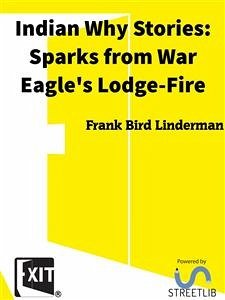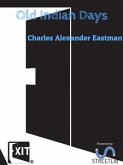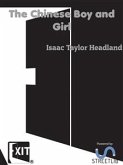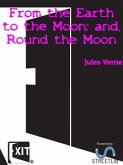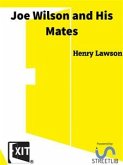PREFACE
The great Northwest—that wonderful frontier that called to itself a world's hardiest spirits—is rapidly becoming a settled country; and before the light of civilizing influences, the blanket-Indian has trailed the buffalo over the divide that time has set between the pioneer and the crowd. With his passing we have lost much of the aboriginal folk-lore, rich in its fairy-like characters, and its relation to the lives of a most warlike people.
There is a wide difference between folk-lore of the so-called Old World and that of America. Transmitted orally through countless generations, the folk-stories of our ancestors show many evidences of distortion and of change in material particulars; but the Indian seems to have been too fond of nature and too proud of tradition to have forgotten or changed the teachings of his forefathers. Childlike in simplicity, beginning with creation itself, and reaching to the whys and wherefores of nature's moods and eccentricities, these tales impress me as being well worth saving.
The Indian has always been a lover of nature and a close observer of her many moods. The habits of the birds and animals, the voices of the winds and waters, the flickering of the shadows, and the mystic radiance of the moonlight—all appealed to him. Gradually, he formulated within himself fanciful reasons for the myriad manifestations of the Mighty Mother and her many children; and a poet by instinct, he framed odd stories with which to convey his explanations to others. And these stories were handed down from father to son, with little variation, through countless generations, until the white man slaughtered the buffalo, took to himself the open country, and left the red man little better than a beggar. But the tribal story-teller has passed, and only here and there is to be found a patriarch who loves the legends of other days.
The great Northwest—that wonderful frontier that called to itself a world's hardiest spirits—is rapidly becoming a settled country; and before the light of civilizing influences, the blanket-Indian has trailed the buffalo over the divide that time has set between the pioneer and the crowd. With his passing we have lost much of the aboriginal folk-lore, rich in its fairy-like characters, and its relation to the lives of a most warlike people.
There is a wide difference between folk-lore of the so-called Old World and that of America. Transmitted orally through countless generations, the folk-stories of our ancestors show many evidences of distortion and of change in material particulars; but the Indian seems to have been too fond of nature and too proud of tradition to have forgotten or changed the teachings of his forefathers. Childlike in simplicity, beginning with creation itself, and reaching to the whys and wherefores of nature's moods and eccentricities, these tales impress me as being well worth saving.
The Indian has always been a lover of nature and a close observer of her many moods. The habits of the birds and animals, the voices of the winds and waters, the flickering of the shadows, and the mystic radiance of the moonlight—all appealed to him. Gradually, he formulated within himself fanciful reasons for the myriad manifestations of the Mighty Mother and her many children; and a poet by instinct, he framed odd stories with which to convey his explanations to others. And these stories were handed down from father to son, with little variation, through countless generations, until the white man slaughtered the buffalo, took to himself the open country, and left the red man little better than a beggar. But the tribal story-teller has passed, and only here and there is to be found a patriarch who loves the legends of other days.

